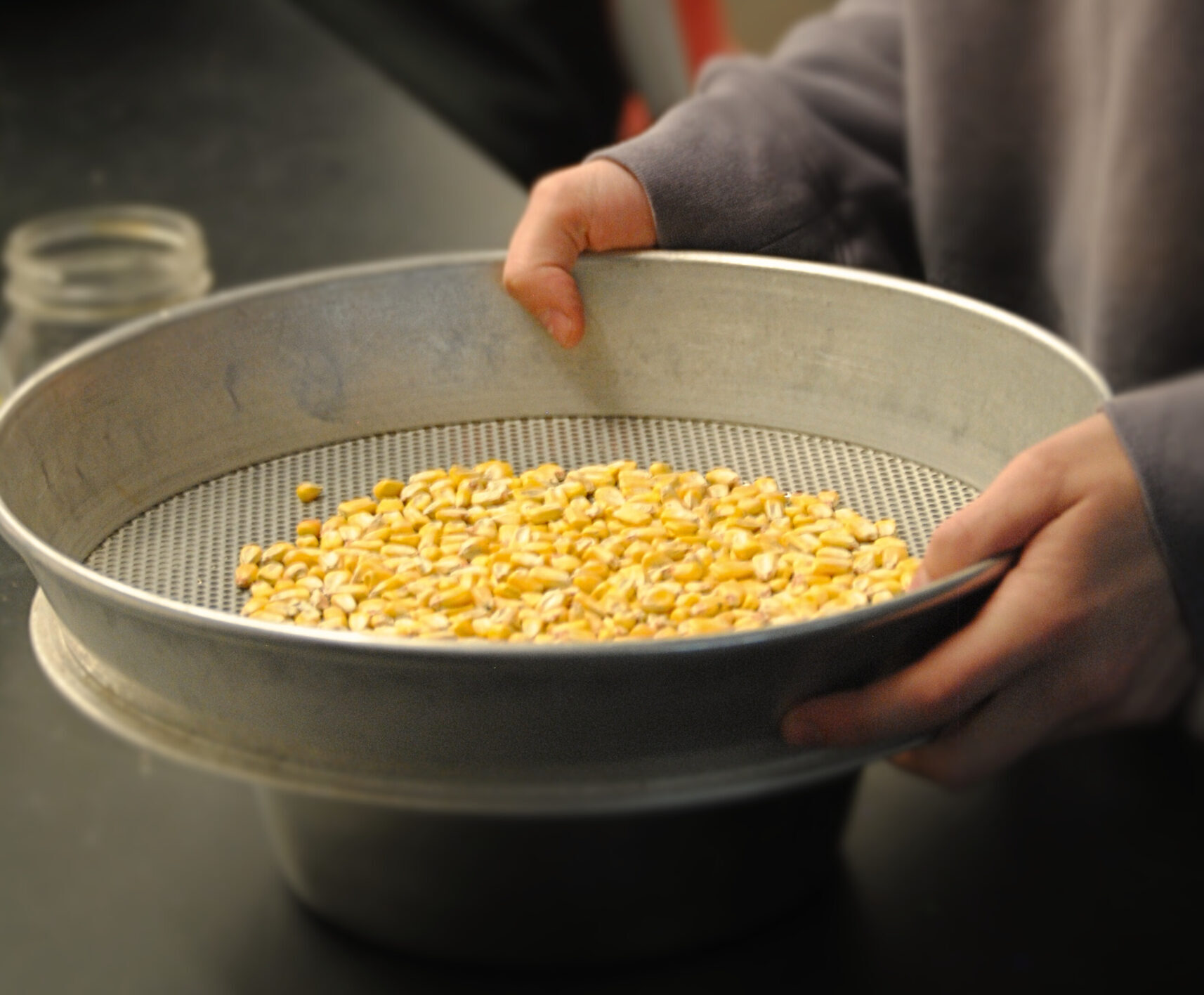Making strides in grain preservation from 6,000 miles away
Author: Anna Keplinger
Author: Anna Keplinger

Kurt Rosentrater, professor of agricultural and biosystems engineering, implements real-time research in ABE 4690: Engineering for Grain Storage, Preservation and Processing systems to give undergraduate students the opportunity to get hands-on experience with research concepts and situations they may face in their careers.
Hands-on work with real-time issues
A challenge of grain storage in places like Uganda is the elements that can deteriorate the quality and yield. In the lab, students in 4690 are working towards identifying and solving one of those elements: Weevils. Weevils are small bugs that burrow into stored maize, eating the kernels from the inside, leaving behind just the shell and their eggs.
“Whether it’s the weevil or a similar insect, they will eat 30 to 50% of the grain on the farm before it gets to market. Having the opportunity for students to do hands-on measurements and understand the dynamics of how fast that grain is being consumed provides data and context for a variety of real-life situations,” said Rosentrater.
Iowa State University has had roots in Uganda since the early 2000s as part of an alumni-funded goal of creating a positive change in the world with agriculture. The Center for Sustainable Rural Livelihoods (CSRL) collaborates with local communities and organizations to build agriculture infrastructures. In Uganda, the program’s maize storage facilities have lost significant amounts because of weevils.
Jennifer Culver, studying biosystems engineering, is currently in 4690 and has seen firsthand how this research makes tangible change abroad with her involvement in Engineers without Borders. With an increase in reliable and sustainable nutrition, test scores in local schools improved.
“The way we solve things over here isn’t going to have the same effect over there; environmental, infrastructural, and cultural differences bring unique elements to solving these challenges. Seeing how families are affected by grain loss provides additional understanding for our work in 4690,” Culver said.
Tom Brumm, Mary and Charles Sukup Global Professor in Food Security and Associate Director of the CSRL, asked, “How much does a weevil eat? Nobody knows. If you knew how infested it was, you could make some prediction of loss and adjust based on that rate,” Brumm said.
4690 is getting experience recording data and taking steps to solve real-time issues affecting international populations.
Learn about opportunities to get involved with the CRSL program and Engineers without Borders collaborating with communities abroad to build sustainable infrastructures.